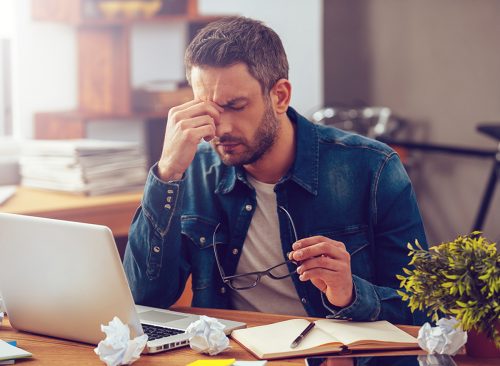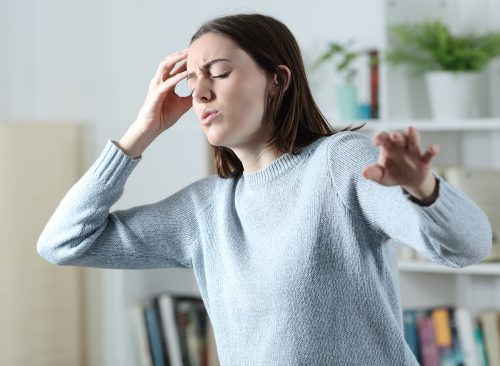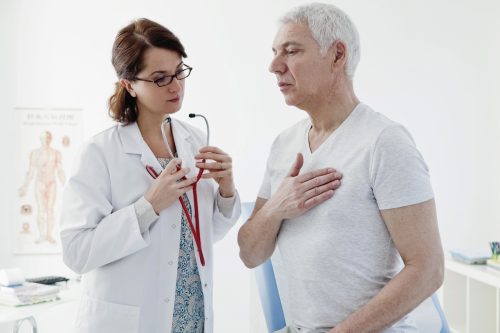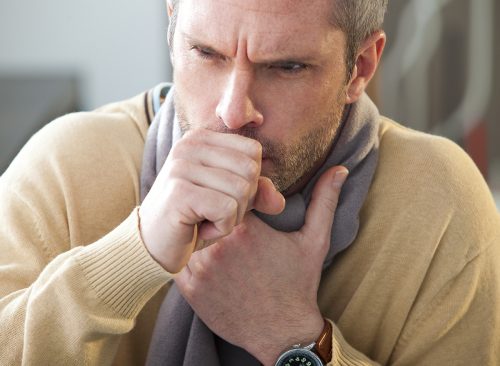10 Key “Long COVID” Symptoms as COVID Cases Rise
Dr. Vergnaud outlines signs you have the long version of the virus.

COVID-19 cases are on the rise, which means that your chances of developing Long COVID are increasing as well. “Long COVID refers to the persistent symptoms some people experience for months and even years following a COVID-19 infection. These can be new symptoms, or the re-emergence of symptoms you had during your initial COVID illness,” explains Dr. Sophie Vergnaud, Senior Director, Clinical Content at GoodRx. The kinds of symptoms people experience can vary. “Long COVID symptoms can affect every bodily system though. What’s more, COVID symptoms can have serious and lasting health implications,” Dr. Vergnaud adds. What symptoms should you look out for? She points to a study published in May 2023 in the Journal of the American Medical Association, listing the 12 most common symptoms that people with long COVID have, 6 months after getting infected.m

The first common symptom is post-exertional malaise. Dr. Vergnaud explains this as “when long COVID symptoms feel worse after physical or mental effort.”

Fatigue is one of the most common COVID symptoms, and also a symptom of the long version of the virus. If you are experiencing “excessive tiredness that interferes with daily life,” you may be suffering from it.

Brain fog is another symptom that Long Covid sufferers regularly complain of. She describes it as “difficulty concentrating and focusing,” adding that some people also experience problems with memory, or changes in their behavior and mood.

Dizziness is another symptom. “This can be lightheadedness, feeling faint, or the feeling that you’re spinning (also called vertigo),” she says.

Gastrointestinal symptoms are also common. “These may include stomach ache, nausea, loose bowel movements, change in appetite, or weight loss,” says Dr. Vergnaud.

Individuals with the long version of COVID commonly experience heart palpitations, which Dr. Vergnaud describes it as “a fast or pounding heartbeat.”

Changes in sexual desire or capacity can also occur. “These include erectile dysfunction and ejaculation problems in men, and reduced libido in all people,” says Dr. Vergnaud.

Loss of taste or smell (also called anosmia), is another symptom. “Some people also experience a distorted sense of smell (called parosmia),” says Dr. Vergnaud.

Another symptom? “Feeling thirsty all the time,” says Dr. Vergnaud.

A chronic cough, “typically a dry, irritating cough that won’t go away,” can also occur in those who are battling the condition, says Dr. Vergnaud.

Pain or tightness in your chest is another sign. “You may feel it’s hard to move or take deep breaths,” Dr. Vergnaud says.

Abnormal movements are also a sign. “This can include tremors, slowed or rigid movements, or sudden, uncontrollable, and jerky movements,” says Dr. Vergnaud.

These aren’t the only signs you have Long COVID. “Other common symptoms of long COVID include: Muscle and body aches, ear ringing (tinnitus), and hair loss,” says Dr. Vergnaud.

Unfortunately, there is no single test that can diagnose Long COVID. “That’s because it’s not just one illness. And because it’s likely a cluster of different conditions, so it looks different in different people,” says Dr. Vergnaud. Researchers are still discovering why some people get long COVID and others do not. “It might be caused by the virus becoming reactivated in the body, the body’s immune response to the virus becoming dysfunctional, or damagingly high levels of inflammation in the body. Most likely, it’s a combination of these factors and more.”

Some people are more likely to get long COVID than others. “For example, you have a higher risk of getting long COVID if you had a severe COVID illness, you weren’t vaccinated when you got infected with COVID, you have underlying health conditions, you are female, or you’re older,” explains Dr. Vergnaud. “But, anybody can get long COVID after a COVID infection. Even if you had mild or no symptoms.”














